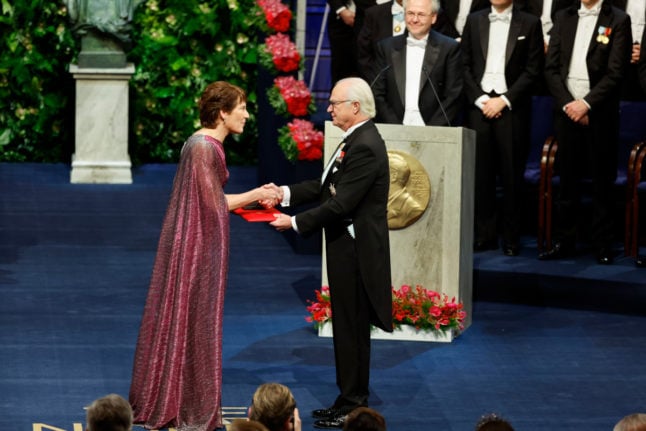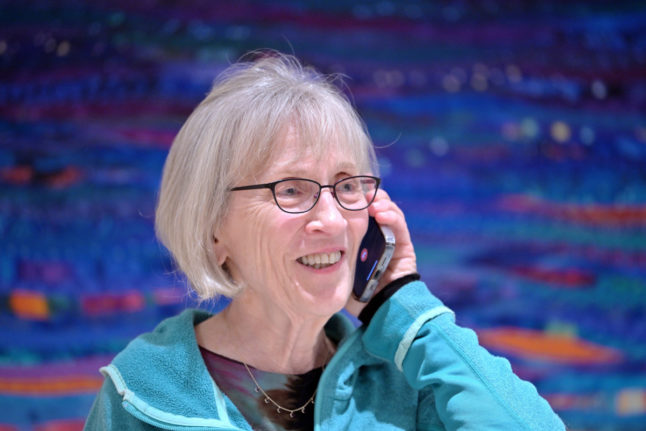The winner or winners of the prestigious award will be unveiled by the Royal Swedish Academy of Sciences in Stockholm at 11.45am at the earliest.
Some of the top names believed to be in the running are US-based James J Collins, Michael Elowitz and Stanislas Leibler, whose work on “synthetic gene circuits” launched the field of “synthetic biology”, according to analytics group Clarivate which monitors potential science laureates.
The field combines engineering principles with biotechnology to modify or create new organisms.
However, Lars Broström, science editor at Swedish Radio, said the field could be seen as controversial, raising “ethical questions about where to draw the line in creating life”.
Also among Clarivate’s top candidates were Indian-born Shankar Balasubramanian and Briton David Klenerman, for co-inventing “the next-generation DNA sequencing methodology that has revolutionised biological research”.
Japan’s Kazunori Kataoka, along with Russian-American Vladimir P Torchilin and American Karen L Wooley are also believed to be strong candidates for the “development of innovative drug and gene targeting and delivery methods”.
Last year, the honour went to Dane Morten Meldal and Americans Carolyn Bertozzi and Barry Sharpless for the development of click chemistry and bioorthogonal chemistry – making Sharpless one of only five people, not counting organisations, to have won two Nobel prizes.
‘Not just a fantasy’
For Broström, a top pick this year is American-Jordanian Omar Yaghi.
“He was one of the pioneers who showed early on that a kind of customised porous material, known as MOFs (Metal-organic framework) was not just a fantasy, but something that could be made sustainable and useful,” he told AFP.
“Today, there are commercial products made of this type of material that can, among other things, absorb and decontaminate toxins, act as a catalyst or even absorb water from desert air,” he added.
Yaghi’s name has previously been floated alongside Japan’s Susumu Kitagawa and Makoto Fujita – also considered pioneers of the technology.
Stanford University chemical engineering professor Zhenan Bao has also been tipped for the prize in the past.
The Chinese-American and her team have invented an “artificial electronic skin” by developing materials for stretchable circuits and flexible batteries.
Another skin-related field that could be Nobel-worthy is tissue engineering, thanks to the American trio Cato Laurencin, Kristi Anseth and Robert Langer.
On Monday, the medicine prize went to Katalin Kariko and Drew Weissman for work on messenger RNA (mRNA) technology that paved the way for groundbreaking Covid-19 vaccines.
Lavish ceremony
The pair had been seen as contenders in both medicine and chemistry, though many commentators believed that despite the impact their work had on the pandemic it was still too early – as the juries have a tendency to wait decades before bestowing the honour.
On Tuesday, the Physics Prize was given to Pierre Agostini, Ferenc Krausz and Anne L’Huillier for research developing ultra quick light flashes that make it possible to study electrons inside atoms and molecules.
The Chemistry Prize will be followed by the highly watched literature and peace prizes, to be announced on Thursday and Friday respectively.
For the Peace Prize, experts have been scratching their heads over possible winners, as conflicts rage around the globe.
The Economics Prize – created in 1968 and the only Nobel not included in the 1895 will of Swedish inventor and philanthropist Alfred Nobel founding the awards – closes out the 2023 Nobel season on Monday.
Winners will receive the prize (which comes with a medal and a cheque for $1 million), from Sweden’s King Carl XVI Gustaf at a lavish ceremony in Stockholm on December 10th, the anniversary of the 1896 death of scientist Alfred Nobel who created the prizes in his last will and testament.
Article by AFP’s Johannes Ledel



 Please whitelist us to continue reading.
Please whitelist us to continue reading.
Member comments